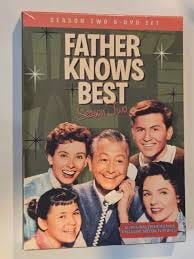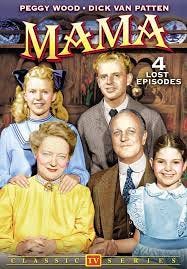This weekend is Father’s Day. It’s the day we celebrate the role of fathers in the lives of their children and in the life of the family. But for many people like myself, Father’s Day brings up complicated emotions. That’s because many of us were raised without a father at home.
My parents divorced when I was very young. I was around the age of two or three. After the divorce, my father simply vanished. He was never part of my life again. My mother, on her own, raised my brother and me while working full-time as a saleslady in a department store. My grandparents did what they could to help, but even their best efforts couldn’t replace the presence of a father.
Today, research makes it painfully clear that children do best when they’re raised by both a mother and a father. And they do even better when there’s an extended family nearby that includes grandparents, uncles, aunts, cousins and people who care and take part in a child’s growth. We now know that children raised in fatherless homes face many more challenges. There’s a greater risk of getting into trouble with the law, of using drugs or alcohol, of struggling in school or having trouble controlling emotions. And I know this not only as a psychologist, but as someone who lived it.
As a child, I was filled with anger and lacked the steady guidance that a father might have given. I had trouble making friends, didn’t do well in school, and often felt lost. I was fortunate, though. Drugs had not yet become the widespread problem they are today, and I had the strict and loving discipline of my mother and my grandparents. Without them, I honestly don’t know how I would have turned out.
When I was a boy, one of the most popular television programs was Father Knows Best. Of course, it painted an idealized version of family life. But it did something important. It reminded people of the value and presence of a father in the home. Another show from long ago was I Remember Mama, based on a Broadway play. While that show focused on the mother, the father’s role was strong too. They were a unit, and the children benefited from that love and partnership.
I sometimes think of my older brother, who had our father in his life during the first six years. Our father may not have been a strong or reliable man, but in those early years, my brother had some contact with him and with our father’s family. They were kind and caring people. By the time I was old enough to remember anything, our father was gone, and I missed out on the support and presence my brother had known. At that young and tender age, those early experiences make a lasting difference.
Years later, I became a father myself. When my wife and I learned we were having twins, we were surprised and overjoyed. We didn’t know that twins ran in my father’s family. I had no real model to follow for how to be a father. I had never seen it in action. But I tried my best, and my wife was a steady and loving partner who helped me find my way. Together, we raised two wonderful daughters. We had our struggles, but we also had laughter, fun, and many warm family memories. And that means everything.
Now, as Father’s Day approaches again, my daughters will be celebrating with me. But I will also be missing my wife, who died ten years ago. Her absence is always felt, and Father’s Day reminds me of what we once had together. Still, we will share stories, remember the happy times, laugh, and celebrate being a family.
I believe we need to return to valuing the family. Not just Father’s Day and Mother’s Day, but a real sense of family day. A day to honor and remember the importance of being there for one another as a family unit. Marriage may no longer be the central institution it once was, and I understand that times have changed. But commitment still matters. Being there for each other, and especially for the children, is what counts.
Our boys and girls need the love, strength, and structure of family in order to grow into healthy, compassionate, responsible men and women. Children need to feel safe, guided, and loved. And they need all of us—parents, grandparents, aunts, uncles, cousins—to be part of that effort.
That is how we heal.
That is how we build the future.
This song is for my daughters and for everyone: father, mother, son, daughter and family:








